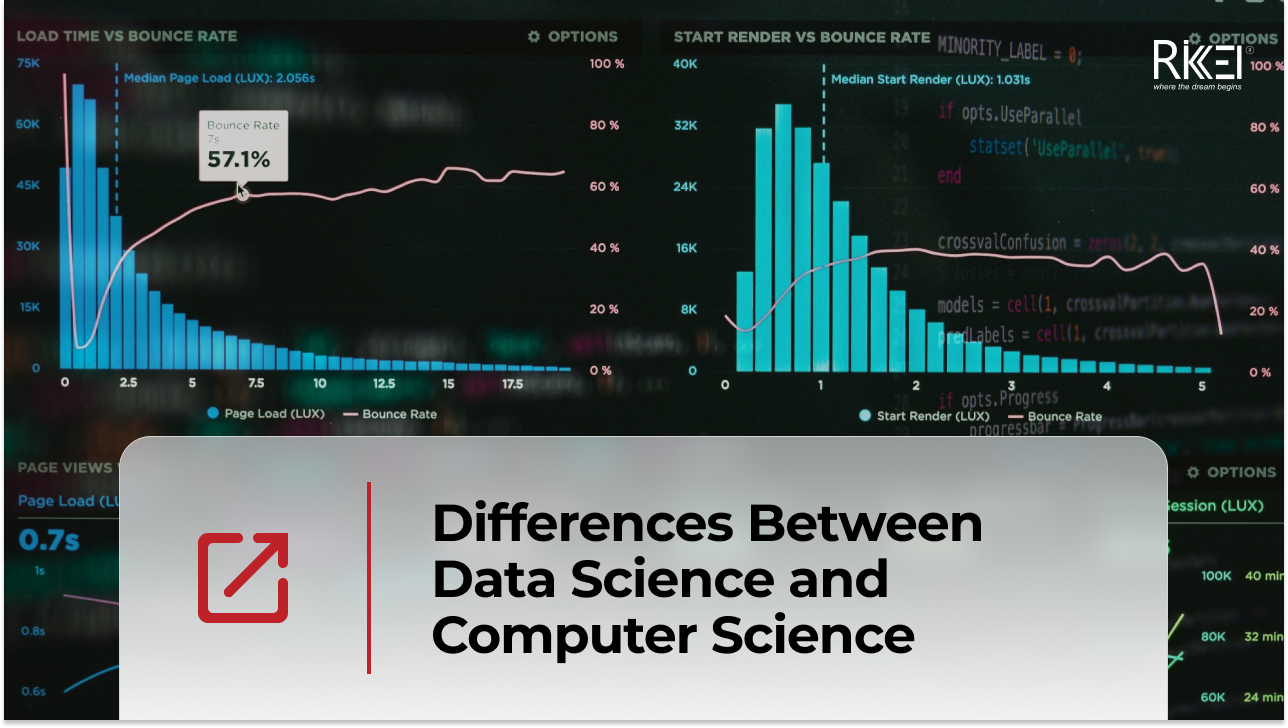10 Best Programming Languages for Software Development
Contents
In this era of technology, interest in software development as a skill has steadily grown. It helps businesses implement their plans and ensure their operation process goes smoothly. As a result, people now take courses to learn common software development knowledge so they can code programs themselves. Undoubtedly, the first choice these budding developers have to make would be choosing between many programming languages to start out with.
Let’s begin by answering this crucial question:
What are Programming Languages?
You can easily come across products of programming languages in your daily life. Desktop applications, websites, mobile apps, pop-up advertisements, or even this article you are reading! Software “magicians” create everything mentioned above through “spellbooks” called programming languages.
Simply put, programming languages for software development are artificial languages used in communicating between humans and machines, particularly computers. Programmers (developers) often use them to perform tasks by writing commands and instructions for computers to execute and provide outputs based on the written input. You can find various software development languages, but usually, they are divided into three major types: machine language, assembly language, and high-level language.
Best Programming Languages for Software Development 2023
It’s essential to pick the right one to learn while working with a programming language for your tasks. But there are plenty of them, and you have a hard time deciding? Worry not, because here are the 10 best programming languages for software development that we recommend checking:
1. Python
Python is a well-known object-oriented, high-level programming language. It was designed by Guido van Rossum and released in 1991. Developers love working with Python for its user-friendly and efficient functions, such as No competition step, fast debugging, portability, etc.
It is often used for:
- Websites and software development.
- System scripting.
- Database systems.
- Complex mathematics.
- Software prototyping.
And much more!
Some Pros and Cons:
| PROS | CONS |
| User-friendly. | Speed limitations. |
| Enhance productivity. | Consume ample memory space. |
| A vast collection of libraries. | Difficulties in testing. |
| Free, open-source, vibrant community. | Difficulties in working with mobile devices. |
| A portable and interpreted language. |
2. C#
C# (C-Sharp) is an object-oriented programming language developed by Microsoft and released in 2002. Its latest version was recently introduced in November 2022. It runs on the .Net Framework – a software development framework for creating and operating applications on Windows. C#’s applications can be found in almost everything you can think of online, including:
- Web/Mobile/Desktop applications.
- Games.
- VR.
- Database systems.
- Web services/sites.
As popular as it is, C# carries its own set of pros and cons:
| PROS | CONS |
| Memory access capabilities. | Not newcomer-friendly. |
| Seamless integration with Windows. | Consume considerable memory space. |
| Compiled language. | Syntax is case-sensitive |
| Type safety. | |
| Easy development and implementation. |
3. C++
C++ (C-plus-plus) is a cross-platform language developed by Bjarne Stroustrup and was first introduced in 1985 as an extension of C language. This language allows users to create high-performance applications with high control over system resources and memory. It is still widely used by software developers and is suitable for various applications:
- Browser/Operating systems/Application development
- Video game programming
- Software engineering
- GUI-based applications (Adobe Photoshop/Illustrator/InDesign/etc.)
- Database systems
and many more.
Being one of the earliest programming languages, it is inevitable that C++ has stronger and weaker aspects to it, as shown in the following graph:
| PROS | CONS |
| Delivery speed | Vulnerable to security issues. |
| Rich library support (Standard Template Library) | No built-in support for garbage collector/thread. |
| Compatibility with C language. | Syntax complexity. |
| Low-level manipulation. | |
| Portable/Multi-platform. |
4. JavaScript
JavaScript is another cross-platform, object-oriented language created by Brendan Eich in 1995. It is a lightweight, imperative and declarative type of programming language, with low CPU usage, minimalist syntax, and easy implementation. In addition, JavaScript comes compiled and interpreted, which makes it convenient for developers.
JavaScript is often used for, but not limited to:
- Web/Server/Mobile applications.
- Web development.
- Games.
- Machine learning.
As with everything else, JavaScript also has two sides to it:
| PROS | CONS |
| Fast processing speed | Browser inconsistency |
| Easy to understand and learn | Client-side security |
| Reduced server load | Lack of debugging facility |
| Feature-rich interfaces | Single inheritance |
| Versatility |
5. TypeScript
TypeScript is a powerful syntactic superset of JavaScript, which adds optional static typing to the language. It was first introduced in 2010 by Microsoft and is developed for large applications and transpilers of JavaScript from both sides – clients and servers. TypeScript enables users to cite the types of data being passed down within the code and report errors when the classes aren’t correct, which JavaScript does not support.
TypeScript is suitable for everything that JavaScript supports, but in much bigger scales, such as:
- Enterprise-level applications.
- Web/Server/Mobile applications.
- Games.
- Machine learning.
Here are some pros and cons for you to check out:
| PROS | CONS |
| Optional static typing | Weird types of conversations at runtime |
| Early spotted bugs | Bloated code |
| Predictable and readable | Extra step (Transpiling) |
| Rich IDE (Integrated Development Environments) support | |
| Versatility |
6. SQL
Structured Query Language (SQL) is an ANSI/ISO (American National Standard Institute/International Organization for Standardization) standard language for database-related activities. Donald D. Chamberlin and Raymond Boyce are two IBM researchers who invented SQL and introduced it to the public in 1974.
It allows users to access and manipulate the database, commonly found in all applications. You can also embed SQL within other programming languages to build high-performance data processing applications.
SQL is used best for data-based activities, which includes:
- Creating new databases.
- Analyzing data.
- Altering data.
- Retrieving data.
- Manipulating existing data sets (Insert, Delete, Update,…).
Here are some pros and cons of SQL:
| PROS | CONS |
| Fast query processing | Complicated interface |
| No coding skills required | Not free-to-use |
| Standardized language | Only partial control |
| Portable |
7. PowerShell
PowerShell is an open-source, object-oriented language developed by Microsoft in 2006 based on the .NET framework. It is a cross-platform automation engine, scripting language, and configuration management framework that maintains support from Microsoft and the open-source IT community. PowerShell is powerful when it comes to cyber security, becoming the most useful programming language for the cyber security of Windows operating systems.
PowerShell is often used for:
- Automate the systems management.
- Manage almost any technology (Azure, Exchange, SQL, AWS, Google Cloud,etc.)
- Management framework.
The following graph contains some advantages and disadvantages of using PowerShell:
| PROS | CONS |
| Extensible format systems | Not beginner-friendly |
| Built-in data | Over-verbose for simple tasks. |
| Extended type systems | Impractical with additional enterprise features. |
| Secured scripting engine | |
| Management automation |
8. Swift
Swift is a high-level, compiled programming language that was first introduced in 2014 by Apple. Its functions can be listed as follows: Multi-paradigm, general-purpose, open source, native error handling, and many more. It’s intended to replace C-based language, but now developers often use it for developing OS (such as iPadOS, macOS, tvOS, watchOS, iOS, etc.). In addition, as the language is open-source, everyone can easily access its code.
Swift is frequently used for development in the Apple ecosystem:
- IPhone and iPad application development
- MacOS desktop application development
- Apple Watch/TV development
- Windows operating system development
- Web services/applications
And much, much more.
Here are some pros and cons of Swift that you might be interested in:
| PROS | CONS |
| Fast and powerful but still effective. | A young language/Lack of capabilities and resources. |
| Less error-prone. | Weak cross-platform support. |
| Safe (Automatic memory management, value types,…) | Frequent updates. |
| Cross-platform and rich library. | |
| Large community support. |
9. HTML/CSS
Hypertext Markup Language (HTML) and Cascading Style Sheets (CSS) are two languages that are often combined for web development. While HTML forms the page’s structure, CSS provides the visual web layout. In 1993, the first version of HTML was introduced by Tim Berners-Lee. And three years later, CSS was initially released by World Wide Web Consortium (W3C), becoming the presentation of documents coming from markup languages like HTML.
HTML is used for describing the structure of Web pages, allowing users to publish online documents, retrieve online information, make orders, and do many activities we usually do online nowadays.
CSS is used to describe the presentation of web pages (Colours, layouts, fonts, etc.), allowing developers to design and adapt their sites to different types of devices (TVs, mobile phones, tablets, printers, etc.)
Combined, these two languages are powerful but not without their own shortcomings.
| PROS | CONS |
| Easy to follow. | Syntax learning. |
| Complete user interface. | Unnecessary code. |
| Grid system. | Repeated basic foundation. |
| Clean and stable code. | Extra customization. |
10. Go
Go (or Golang) is an open-source, compiled programming language that Google initially introduced in 2009. Developers immediately fell in love with the language due to its simplicity, efficiency, readability, and multi-tasking function. In addition, it is a cross-platform (mainly desktop) language, making it easier for developers to perform tasks as they can choose to work with already-familiar platforms. Moreover, programmers can also work anywhere, at any time, with anyone as Golang can appear on mobile devices as well.
Go is often used to in:
- Web application development.
- Distributed network services.
- Cloud-native development.
- Media platforms.
And many more.
As it is a fairly new language, Go has some drawbacks to its strengths, being:
| PROS | CONS |
| Minimalism. | No generics/More additional code. |
| Transparent code. | Poor library support. |
| Fast. | Small community. |
| Compatible with multiple programs. | Young language/Lack of capability and resources. |
After seeing all the types of programming languages for software development, people often ask: “What is the easiest coding language?”, and there is no certain answer to it. It depends on each individual’s needs for learning.
To be honest, earning a programming language is undoubtedly quite challenging because of its differences from human language. However, it’s still the most basic requirement if you want to dedicate yourself to the software development industry. And to choose the most useful coding language to your liking, you will have to consider all the options before settling down with one.
Why Should You Consider Programming Languages?
In the software development segment, there are different types of categories that require distinct programs, and programming languages. These can be specifically listed as: Websites, Backend/Frontend, Compilers, Operating systems, Video games, Desktop/Mobile applications, and so on. As different programming functions are required, you will have to learn different types of programming languages depending on what areas you follow.
Before choosing a language to learn, you should set up your target with these questions in mind:
- What are your needs?;
- How are you gonna learn it?
- Why is this language suitable for your needs?
- When are you gonna follow it?
We can narrow down some suitable languages for different branches of software developments for you:
If you are interested in developing websites, you could consider trying the following languages:
- HTML
- JavaScript
- PHP
- Python
Do you want to go for database development? Try:
- SQL
- MySQL
- DBASE
- FoxPro
If developing mobile applications is your interest, maybe take a look at the following:
- C
- C#
- C++
- Swift
- Java
Is game development your dream job? You can experience the following:
- C
- C#
- C++
- Java
If you intend to learn programming languages for software development, we recommend choosing the most suitable one for your needs rather than following what people use the most. As a result, you can save time, money, and effort in learning programming languages. Eventually, it will bring you more benefits than you expect.
However, if you want to experience all programming languages for software development, go for it. It may take time and lots of effort, but gradually you will find the most suitable coding tools you feel comfortable working with.
Rikkeisoft – An Alternative for Software Development
If you have decided that you would forgo the process of learning how to code altogether yet still want a complete software product, you can think of outsourcing the development to a reliable service provider like Rikkeisoft.
Founded in 2012, Rikkeisoft is a Vietnamese IT service provider with complete software development packages in any programming language you can think of. With Rikkeisoft’s cost-efficient solutions, you can build, maintain, and scale your software idea without ever having to touch a line of code!
More From Blog

April 4, 2024
Big Data Performance: Maximize Your Business Value
In today’s data-driven world, organizations are constantly generating and collecting immense amounts of data to understand their customers more deeply. This data, often referred to as “big data,” holds immense potential for organizations to seek opportunities and overcome challenges. But accessing and analyzing big data isn’t enough to have proper strategies; organizations must pay attention to […]

April 4, 2024
How Real-Time Data Analysis Empowers Your Business
In today’s fast-paced business landscape, the ability to quickly make data-driven decisions has become a key differentiator for success. Real-time data analysis, the process of analyzing data as soon as it’s generated, has emerged as a powerful tool to empower business across industries. By leveraging real-time data analysis, organizations can gain timely and actionable insights, […]

April 4, 2024
Differences Between Data Science and Computer Science
Data Science and Computer Science are distinct fields overlapping in certain areas but have different focuses and objectives. The article below will help you clearly understand the differences and the close connection between the two fields. What is Data Science? Data Science is an interdisciplinary field that combines scientific methods, processes, algorithms, and systems to […]

March 28, 2024
Introduction to Data Visualization and Key Considerations for Businesses
In your opinion, what is data visualization? Your main goal is to communicate your recommendations engagingly and effectively, right? To achieve this, let’s immediately explore a method that can represent information with images. What is Data Visualization? Define data visualization and their roles in organizations First, you need to find the answer to the question: […]

March 21, 2024
How to Build an Effective Big Data Analytics Tool for Your Business
Building an analytics tool for a business brings several significant benefits, especially in today’s business environment where data is becoming larger and more complex. So how to build an effective analysis tool for businesses, follow the article below! Assessing Business Needs Assessing business needs involves understanding the requirements, goals, and challenges of a business or […]

March 14, 2024
What Is Oracle Business Intelligence? Their Role in Today’s Enterprises
Oracle Business Intelligence (BI) refers to a suite of tools, technologies, and applications designed to help organizations collect, analyze and present business data. The primary goal of Oracle BI is to provide actionable insights to support decision-making within an organization. Oracle BI encompasses a range of products that enable users to gather, process and visualize […]

